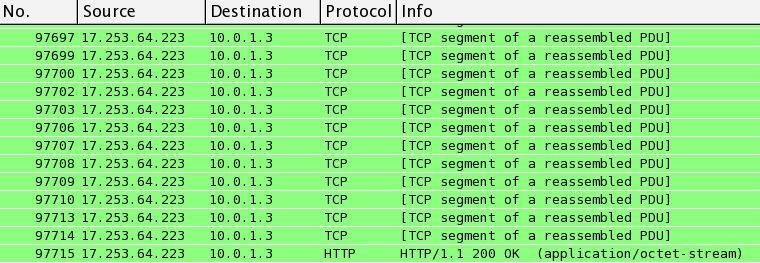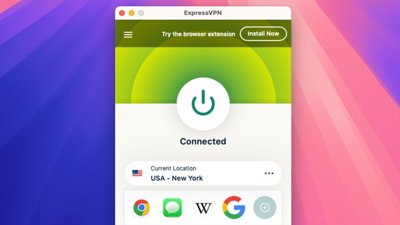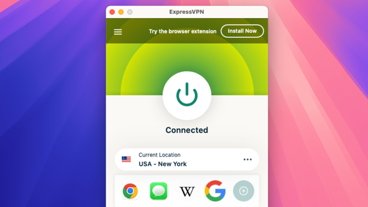Following months of rumors, Apple appears to be in the early stages of launching its own in-house content delivery network, the latest in a series of steps taken by the company in recent years to reduce its reliance on third-party infrastructure vendors to deliver content to customers.
Only a small portion of Apple's massive content trove is handled by the new CDN, with current players Akamai and Level3 reportedly continuing to serve iTunes and iTunes Radio, respectively. The change was first spotted by Dan Rayburn of StreamingMedia.com.
AppleInsider has independently confirmed that some binary downloads through the Mac App Store are now served from hardware residing in Apple's own 17.0.0.0/8 network block. Apple is one of only a handful of private organizations to have been assigned an entire Class A IPv4 block, making connections to its services easy to spot.
Apple is thought to have spent more than $100 million to build out its new CDN, including infrastructure costs and the signing of paid interconnection agreements with major internet service providers such as Comcast. The iPhone maker has reportedly added "multiple terabits per second" of capacity, a nearly tenfold increase over its current capabilities.
Though it is not yet known how Apple plans to realign its content delivery strategy, any major change could be particularly damaging for Akamai. The company — into which Apple invested $12.5 million before selling its shares in 2004 — currently counts on Apple for nearly 10 percent of its business.
 Sam Oliver
Sam Oliver








 Malcolm Owen
Malcolm Owen
 Marko Zivkovic
Marko Zivkovic
 Wesley Hilliard
Wesley Hilliard
 Christine McKee
Christine McKee


 William Gallagher
William Gallagher





-m.jpg)




24 Comments
Now it's getting good...
Awesome... This is the beginning of AppleTV. Cord cutters rejoice.
Is this similar to Netflix and YouTube? I believe they run their own CDN's as well.
Awesome...
This is the beginning of AppleTV.
hardly.
This is just cutting out a middle man or 3. It's exploiting their own data centers and established peering agreements with MSPs and ISPs, as opposed to copying their content into a CDN and paying the CDNs to negotiate the deals.
This just lowers Apple's Content Delivery costs a couple of percent... but in a 150Billion/year business, every billion counts;-).
It's that backhaul network that's key. There is a lot of stuff that isn't nicely done with CDNs (read: iCloud upload speeds, and like passing security tokens back and forth), and if it's a cable company, getting current local cable information and uploading streaming content [that is AppleTV, but it could have been done to current CDNs as well who are in every cable companies local distribution hubs] to optimize routing.
Bottom line, Apple is committed 1000% to the cloud for content management, and not depending on intermediaries for delivery. In a business that will turn more and more on selling 'swiftly and safely shared bits' (think health kit and home kit 'phoning home'), Apple isn't leaving much to chance.
Like Google, the closer Apple can get to the consumer, the better the experience (and more control in making it better). Apple isn't doing final mile, but that's fraught with hassles (dogs ripping the fiber out of the ground, lightning, blowing out repeater stations, etc), so this is g
Is this similar to Netflix and YouTube? I believe they run their own CDN's as well.
yes. although I'm not sure Netflix's CDN is based on netflix hardware (it's AWS based).edit. Netflix actually manages the network, and has the local caching boxes as well (an ISP can get a box placed in it's dist. hub if it feels it would rather not set up a dedicated peering link (or in addition to, to level usage demands). Netflix's computational platform is AWS, I don't see where their content is on S2.
Youtube/google. we know that drill